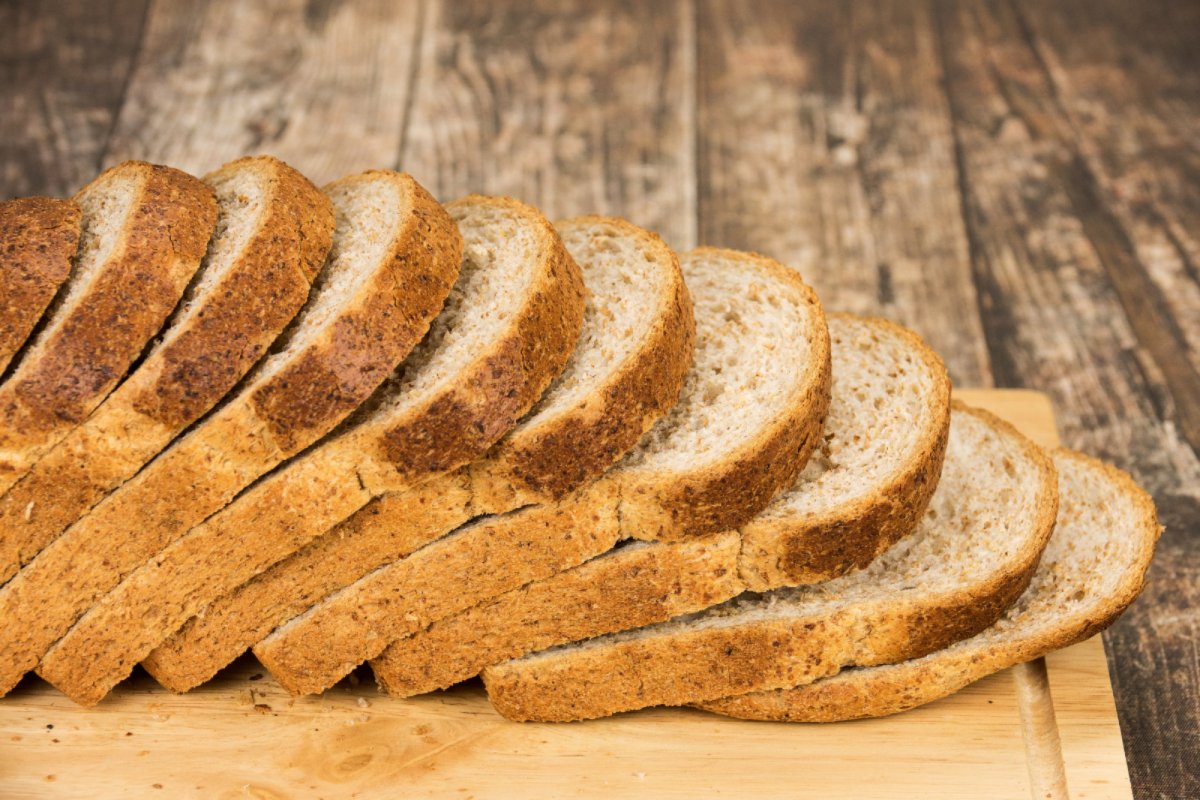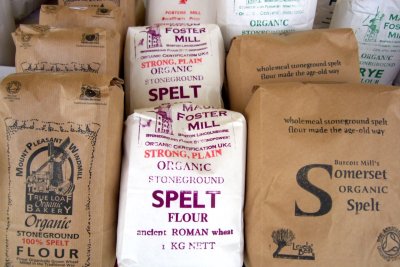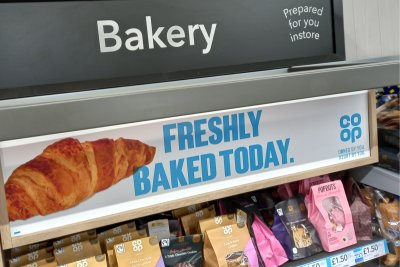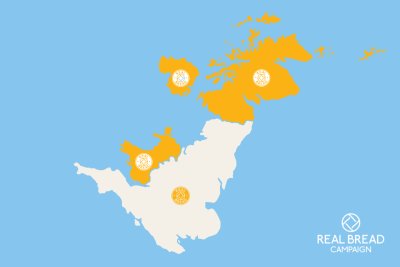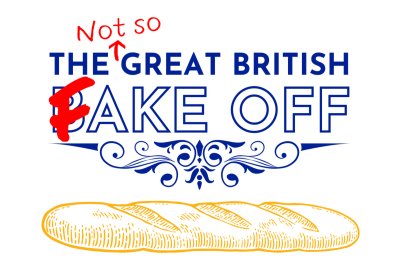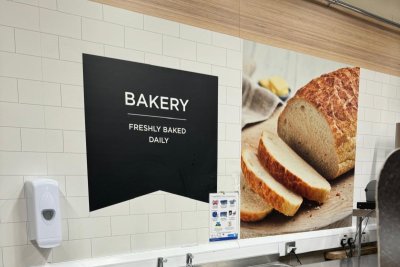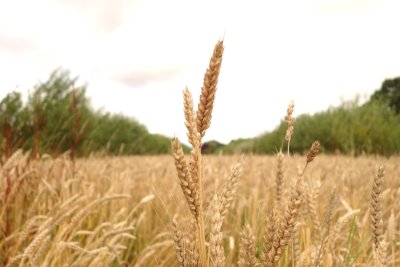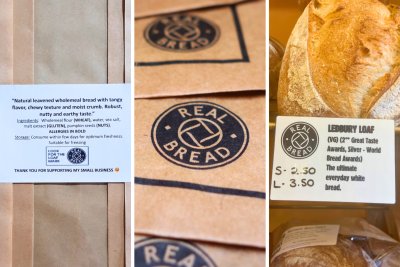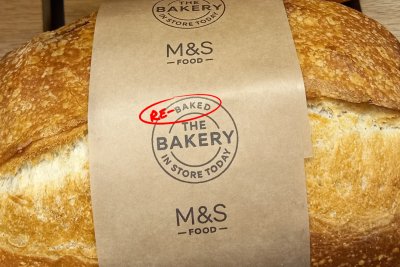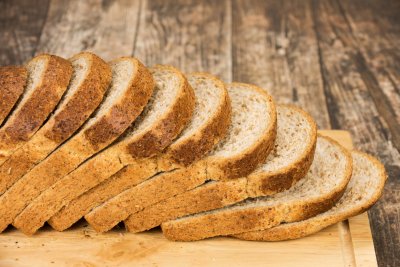 Wholemeal = wholemeal. Credit: Canva
Wholemeal = wholemeal. Credit: Canva
As the result of complaints by the Real Bread Campaign being investigated by trading standards officers of eight local authorities about nine major brands using white flour in products marketed with the word wholemeal, Defra has confirmed that the practice is prohibited.
Following work that began in June 2022, the Campaign has obtained a copy of a statement issued by Defra to trading standards officers. Confirming the Campaign’s long-standing assertion, Defra stated that The Bread and Flour Regulations: “prohibit the use of the term wholemeal in the naming of advertising of these products.”
Defra continued that “by making adjustments to the labelling it is possible to market these products in a way which satisfies both The Bread and Flour Regulations 1998 and FIC [Food Information to Consumers Regulations].” Defra also confirmed that for such a product, the word wholemeal should appear on the ingredients list but nowhere else.
Real Bread Campaign coordinator Chris Young said: “We welcome this confirmation as a small victory for shoppers. We trust that companies will be quick to amend the marketing of their half-and-half products, as well as removing the refined flour from their otherwise wholemeal ones.”
Outstanding issues
Young went on to say: “There are many other important issues we’d rather be championing or challenging, which makes it all the more frustrating that this needed pursuing at all, let alone for so long, when the law is clear cut. It begs the question: what other regulations might industrial dough fabricators be breaching?”
He also re-stated the Campaign’s frustration that the ‘all flour must be wholemeal’ regulation only applies to wheat flour. Products marketed as wholemeal can contain any quantity of soya flour, gluten powder and other modified or highly-refined extracts of grains, pulses and plant matter.
Defra continues to decline introducing a legal definition of the word wholegrain, or any of the Campaign’s other Honest Act Crust proposals for improved composition, labelling and marketing standards. In the meantime, the Campaign continues to encourage all manufacturers and retailers to adopt them voluntarily.
A summary of responses to the public consultation on amending the Bread and Flour Regulations 1998, was due within 12 weeks of its closure on 23 November 2022. After this mid-February 2023 deadline passed, the Campaign emailed the Secretary and Minister of State to ask for an ETA. On 24 July the Minister of State replied that ‘Defra officials are still working to a date of late summer to publish a summary response.’ The Campaign has been following up for a more accurate estimate (and answers to the rest of its questions) since 17 August.
The Real Bread Campaign is also currently awaiting a response from Lidl's CEO about the company's Rowan Hill brand Two In One White & Wholemeal, and from the Advertising Standards Authority to separate issues regarding Asda and Hovis.
**ENDS**
The Real Bread Campaign was co-founded by Andrew Whitley of Bread Matters (and latterly Scotland the Bread) and Sustain: the alliance for better food and farming, the charity that still runs it. The Campaign was officially launched in 2008 and marks its 15th anniversary on 26 November 2023.
The Campaign defines Real Bread as made without chemical raising agents, so-called processing aids or any other additives. This includes, but is not limited to, genuine sourdough bread.
From this simple and universally-accessible starting point, the Real Bread Campaign finds and shares ways of making bread better for us, better for our communities and better for the planet. We work towards a future in which everyone has the chance to choose Real Bread and can access it within walking or cycling distance, whether bought or made at home.
Background
Regulation 6 of The Bread and Flour Regulations (1998) requires that: 'There shall not be used in the labelling or advertising of bread, as part of the name of the bread, whether or not qualified by other words […] the word 'wholemeal' unless all the flour used as an ingredient in the preparation of the bread is wholemeal.’
In June 2022, the Campaign began investigating Aldi, Hovis, Iceland, Jacksons, Sainsbury's and Warburtons using the word wholemeal in the marketing (and, in two cases, names) of industrial dough products made using at least 50% highly-refined white flour.
This was followed in July 2023, by questioning Aldi, Asda, The Co-operative, Sainsbury’s, Marks & Spencer and Waitrose using what appeared to be non-wholemeal flour in one or more other products each named and marketed using the word wholemeal.
Other than Iceland (which withdrew its half-and-half loaf in January 2023) all of the companies declined to change either their product marketing or formulations. In their defences, some supermarkets said the white flour was not being used as an ingredient: Aldi claiming it to be a processing aid, while both Asda and The Co-op stated it was added as a dusting to the products after manufacture, rather than being used in them.
The Campaign then submitted complaints to the trading standards departments responsible for the Primary Authority relationships with the companies. In July 2023, Oxfordshire County Council confirmed that their trading standards officers had advised Sainsbury’s to relabel and/or re-formulate its products in order to comply with the regulation.
Defra’s full statement
“The language used in regulation 6 of the Bread and Flour Regulations 1998 is clear and quite strict in that the term wholemeal should not be used in the labelling or advertising of the bread, as part of the name of the bread whether or not qualified by other words. The intention here being to protect the term “wholemeal” from being used on the labelling of a product and advertising it in a way which would imply it is more nutritious for the consumer than it is. Basically wholemeal is a marketing term for businesses. From this standpoint the use of the term wholemeal in the name of some of the 50/50 style products may be considered to be in conflict with this requirement.
We have heard some arguments that the use of the term wholemeal is necessary to meet requirements around descriptive names under article 17 of Regulation 1169/2011 on food information to consumers (FIC). For this argument to stand the restrictions in article 6 of The Bread and Flour Regulations 1998 would need to be preventing an FBO from meeting requirements under FIC in the labelling of the product. Having explored this further we think it is possible to continue to market 50/50 products without the term wholemeal flour in the name or advertising of the food (although it is necessary to be present in the ingredients list). For example, a product could be marketed as “50/50 bread made with a blend of flour” and then wholemeal flour could be declared in the ingredients list alongside QUID [quantitative ingredient declaration] declaration.
Hence, in our view regulation 6 of The Bread and Flour Regulations 1998 does prohibit the use of the term wholemeal in the naming of advertising of these products but by making adjustments to the labelling it is possible to market these products in a way which satisfies both The Bread and Flour Regulations 1998 and FIC.
Since we were not able to include any proposals on this provision in the public consultation, we will not be amending this provision in the forthcoming planned amendments to The Bread and Flour Regulations 1998, particularly since there have been divergent views expressed on this matter. In terms of enforcement provisions we also intend to move towards improvement notices in the forthcoming amendment of the Bread & Flour Regulations 1998.
The information above is not an authoritative statement of the law. It is up to trading standards to enforce the regulations and only the courts can interpret the law in a legally binding way.”
What next?
Having received the above, the Real Bread Campaign contacted Defra on 17 October, asking:
- So that we can point bakers, retailers, shoppers and others to this, where and when will Defra publish it?
- With regard to rest of the Real Bread Campaign’s Honest Crust Act proposals, in your email of 21 March 2023 you advised “we will endeavour to further explore points which have been raised with relevant officials to establish suitable courses of action.” Six months later, are you able to advise what courses of action have been decided and give timescales for these?
- When will Defra be publishing the summary of responses to the public consultation on amending the Bread and Flour Regulations 1998, which was due within 12 weeks of its closure on 23 November 2022 – ie by 15 February 2023?
We followed up on 20 October but as of 23 October, we have not received any response to this from Defra.
Updates
8 November 2023: We replied to an email we received on 7 November from the Minister of State at Defra.
24 October 2023: Responding to our email of 17 October, a Defra officer wrote:
"The text you have published does not constitute a 'Defra statement' and should not be referred to us such. We are working towards updating government guidance for the Bread and Flour Regulations 1998 which will provide greater clarity on the use of the term ‘wholemeal’ in labelling for bread which contains both wholemeal and non-wholemeal flour. This will help to support a level-playing field for industry, and we will look to publish the updated guidance alongside planned amendments to the Bread and Flour Regulations 1998.
We are unable to provide an exact date of publication of the government response to the consultation on proposals to amend The Bread and Flour Regulations 1998, but we continue to work closely Department of Health and Social Care, Department of Health in Northern Ireland, Scottish Government, Welsh Government, Food Standards Agency (FSA) in Northern Ireland and Wales, and Food Standards Scotland to publish as soon as possible."
We replied:
"If it’s not a statement, what should we call it?
Thanks for confirming that you will be publishing guidance on use of the word wholemeal, albeit at some unspecified point in the future.
In the open-ended meantime, how/where are you publishing/disseminating this whatever-you-call-it that Defra sent to trading standards officers in Enfield? Even officers at other Primary Authorities dealing with complaints on this issue hadn’t all seen it.
Can you please also answer the other outstanding question from my email last week: With regard to rest of the Real Bread Campaign’s Honest Crust Act proposals, in your email of 21 March 2023 you advised “we will endeavour to further explore points which have been raised with relevant officials to establish suitable courses of action.” Six months later, are you able to advise what courses of action have been decided and give timescales for these?"
Real Bread Campaign: The Real Bread Campaign finds and shares ways to make bread better for us, better for our communities and better for the planet. Whether your interest is local food, community-focussed small enterprises, honest labelling, therapeutic baking, or simply tasty toast, everyone is invited to become a Campaign supporter.
Sustain
The Green House
244-254 Cambridge Heath Road
London E2 9DA
020 3559 6777
sustain@sustainweb.org
Sustain advocates food and agriculture policies and practices that enhance the health and welfare of people and animals, improve the working and living environment, promote equity and enrich society and culture.
© Sustain 2024
Registered charity (no. 1018643)
Data privacy & cookies
